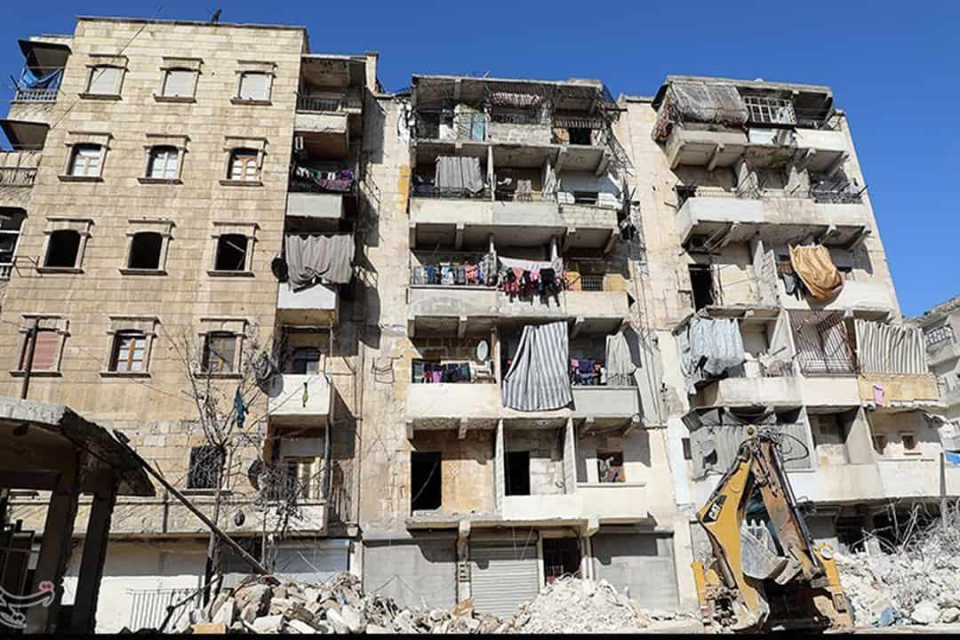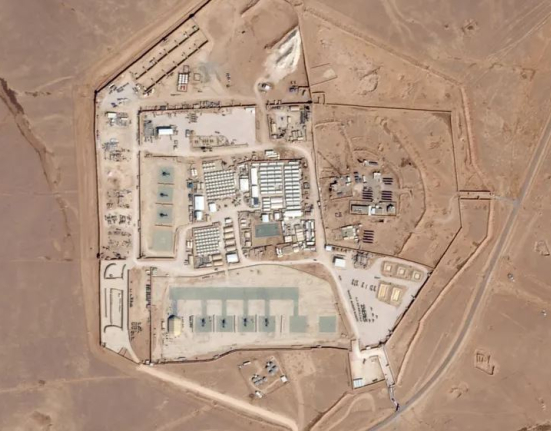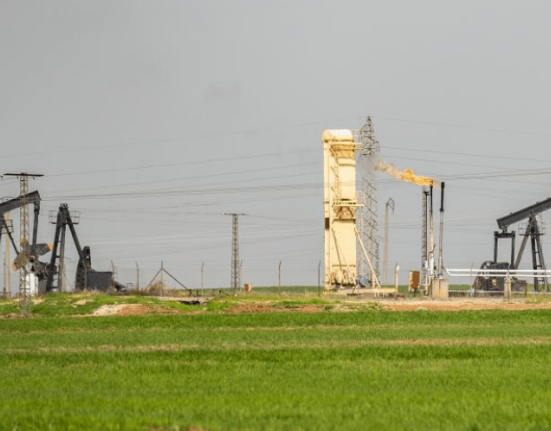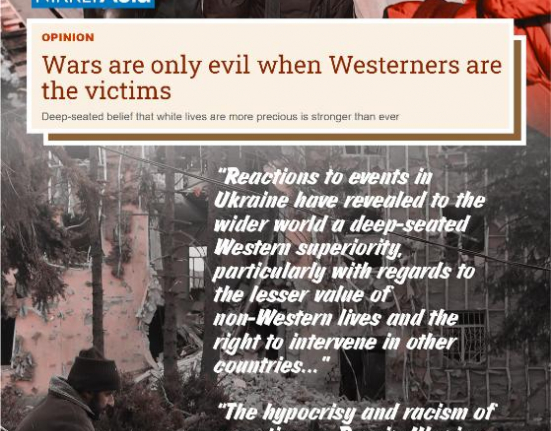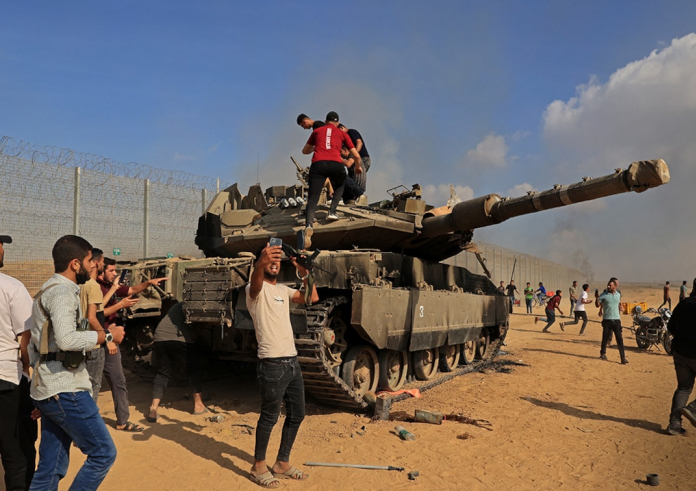On the dawn of February 6, 2023, an earthquake shook the ground in Northern Syria and Türkiye with a 7.7 magnitude, killing over 50,000 people and injuring thousands more. A few hours later, another earthquake with a 7.6 magnitude followed, causing more damage.
While politicians raced to publish words of comfort and support, their movement to action was rather slow. Most prominently, United Nations (UN) Secretary-General António Guterres released a statement saying that the UN was ready for action when called upon. However, as organizations began to collect donations and flew into Türkiye, the public seemed to have forgotten the severe economic sanctions placed on Syria: a reality that continues to be relevant a year later, and that Syrians cannot forget.
Economic sanctions: More suffering than benefit
Economic sanctions are imposed by government and multinational bodies on a country to impede them from pursuing specific economic or political actions. Sanctions can include a ban on weapons, freezing assets the target country holds under the sanctioning country’s jurisdiction, financial restrictions, and more.
Syria was first sanctioned and labelled by the US as a “State Sponsor of Terrorism” in 1979. This identification is assigned to states that allegedly support terrorist groups. Sanctions by the US intensified in the following years and peaked at the onset of the 2011 Syrian War.
According to the Merriam-Webster dictionary, a civil war is “a war between opposing groups of citizens of the same country.” Consequently, I don’t refer to it as the “Syrian Civil War” because the war surpassed the involvement of only civilians and the ruling party. The conflict was fuelled, funded, and prolonged by the involvement of multiple parties including Iran, Russia, US, Türkiye, Qatar, and Saudi Arabia.
In 2011, the European Union (EU) sanctioned many members of the Syrian government, military, and intelligence personnel by freezing their assets, banning imports, and prohibiting trade with specific companies. The EU’s sanctions since then in response to the Syrian government’s political repression of civilians, who protested in 2011 en masse against President Bashar al-Assad’s corruption. In August of the same year, the US heightened sanctions against Syria to include restrictions on imports to Syria, on the selling of Syrian petroleum, and more.
Although the sanctions have failed to stop the ongoing violence in Syria, they remain in place and cause more harm than good. The COVID-19 pandemic and the 2023 earthquake underlined the detrimental outcomes of these sanctions on internally displaced refugees and civilians. Basic necessities have become hot commodities people can only dream of, and classic Syrian dishes have now become sacred memories, as some can no longer afford to eat them. Syrians struggle to make ends meet after being isolated from most of the world, with the exception of Russia.
Food accessibility is not the only issue. Syrians lack access to electricity, which limits their access to warmth. In some regions in Syria, civilians only have access to less than half an hour of electricity every 24 hours. The shortage has people relying on older methods like vintage kerosene stoves to keep light in their households.
Civilians are suffering, with no end in sight. Although the US Department of Treasury announced a six-month suspension of the sanctions in February 2023, it was only to help with earthquake aid. This is yet another short-term solution the US chose to follow. One year later, the impact of the earthquake still points to the need for a more sustainable solution.
International aid continues to decrease while the need for support increases. Most notably, the Syria Humanitarian Response Plan recorded a 62 per cent decrease in funding in 2023, and that number is expected to decrease more in 2024. Furthermore, the World Food Program announced that it would end its ‘general’ assistance program in Northwest Syria due to funding shortages. The lack of funding is forcing some people to burn plastic for warmth in Idlib because wood is too expensive. The reduction in funding deprives numerous individuals of sufficient support, exacerbating the existing gap in assistance and putting lives in danger.
Moving forward
Removing sanctions on Syria would alleviate price hikes, allow for ease of transportation, and allow for the import and export of goods to generate both money and support for people in the country. The United Nations High Commissioner for Refugees estimated that over 6.98 million internally displaced people in Syria, who are mainly women and children, do not live in stable conditions, and 15.3 million are in need of humanitarian support.
The devastation in Syria has moved beyond politics and is now a humanitarian crisis awaiting the response and collective action of the international community. It is up to global leaders to respond to the dire situation in Syria by removing sanctions to uphold the right to life of millions of people.
Removing sanctions and normalizing relations with the government should not be a way to forget or condone the harm inflicted on civilians during the war. Instead, it’s to protect and honour the lives of those who are left. It is clear the current sanctions are not working, with civilians most negatively impacted. Therefore, there needs to be a commitment to focus on long-term solutions that help those impacted and support them out of a state of war.
Last year, UN experts and some religious groups such as the Middle East Council of Churches called to lift the West’s sanctions on Syria entirely to support civilians and remedy the harm that the sanctions inflicted. However, those calls have been met with silence. In fact, the Syria Response Director at Save the Children, Rasha Muhrez, shared in an Al Jazeera article that her address to the UN Security Council fell flat when she urged for a different approach to support Syria.
These calls to action must become tangible commitments to support those living in dangerous situations. As heads of state and governments prepare for the Sustainable Development Goals (SDG) Summit in September, it is their opportunity to remedy their negligence and lack of long-term support for the past couple of years. Removing sanctions can bring Syria one step closer to the international community’s SDG commitments of eliminating poverty and hunger, educating more children, and establishing peace, justice, and strong institutions.
The Universal Declaration of Human Rights states that people have the right to a “standard of living adequate for the health and well-being of himself and of his family, including food, clothing, housing, and medical care.” If states believe this to be true, how are the sanctions invoked on Syria justified?
The advocacy work is there, as humanitarian aid workers continue to plead with the international community to do something. There needs to be a global commitment to protecting and elevating Syrian lives out of poverty, instead of sending empty condolences to affected families.
Basmah Ramadan is a second-year Masters of Global Affairs candidate with an emphasis in Global Policy. She is the president of the Muslim Students’ Association and the Director of Internal Affairs of the Masters of Global Affairs Students’ Association.

